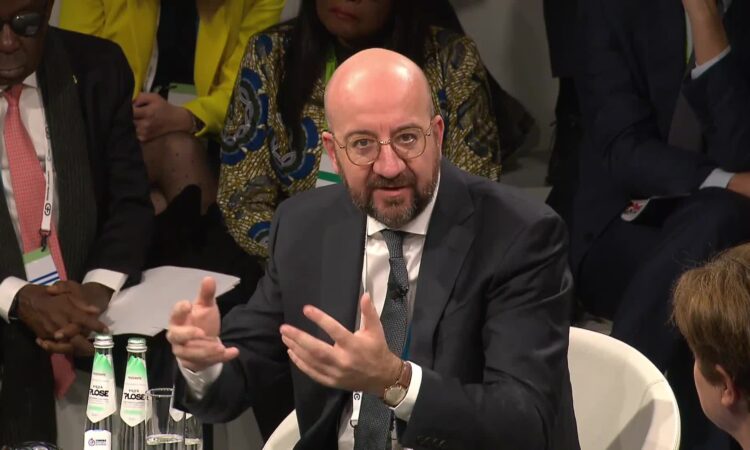
Thank you and good morning. It is a great pleasure to have the opportunity to meet you and to exchange views with you.
Just a few points very briefly. First, we all know the global context: climate change, a huge transformation of our economic paradigm, digital transformation, and a few years ago the COVID crisis, which gave us a better understanding of the strengths but also the weaknesses at international level. And today – or one year ago, to be more precise – the start of the war against Ukraine.
This means, in my opinion, that more than ever we need more international cooperation. We need more mutual understanding. And we need more political dialogue. This is the moment to think about and to work on a possible new Founding Pact for the international community. And we know that the architecture of the international community is based on the previous century, but today we have a totally different situation.
I would like to share some thoughts and some ideas with you. First, we must never forget that the current situation is deeply influenced by history, and sometimes we forget that in our relationships with our partners, with third countries outside of the EU. I will give you an example: for us, on the EU side, human rights, democratic principles and human dignity are a fundamental goal. These are fundamental values. Why? Because in the last century we faced tragic wars, and it has given us the impression that we have a special responsibility to make sure that those values are universal.
But I know that sometimes the tone we use, the way we try to support those values, is seen by some of our partners as being arrogant, as if we are lecturing them. We should take this into account because it means that sensitivities need to be respected.
My second point: I think it is really important to try to identify what our common goals are. Our common goals in my opinion are obvious. We should all work for more security, more peace, more stability, and more shared prosperity. These should be our common goals. And if these are our common goals, we should identify the means, the tools we are ready to use and to mobilise to reach those goals. And here money is a fundamental challenge because this is the way to guarantee more solidarity and more fairness. I am certain that here around the table there is a lot of expertise on this question.
I will just share with you some points related to this question of solidarity and money. First, in the EU, we are very humble, very modest, and we are trying to do our best. The EU is by far the main sponsor for the UN system, but also for climate-change financing. And we need to maintain this political ambition.
Point two is related to governance and the importance of fighting corruption to make sure that in all countries across the world it is possible to maximise their own revenues and to attract the private sector. Because if there are efforts towards better governance, then it means it is also more attractive for the private sector to invest and to trust the choices that are made in those countries.
Point three is connected to debt. There is unfairness today. The level of debt in those developing countries is very high, which means that access to capital is more difficult and it is more expensive for those countries. That’s why I feel there is the opening of a debate on the role that should be played by development banks, especially with the question of de-risking, which is also a challenge we should address, in my opinion.
Partnerships, equal partners, mutual respect, confidence, trust – these should be the main principles for this new Founding Pact. And I hope that sooner or later there will be the political space, the political framework, I think within the UN, to have this debate.
By the way, when the EU took the decision to support the proposal of the African Union to be part of the G20, I think this is a small example that shows that we need to trust each other, we need to listen to each other, and to respect each other. We also need to build this new Founding Pact to be able to address the challenges for ourselves and for future generations.






